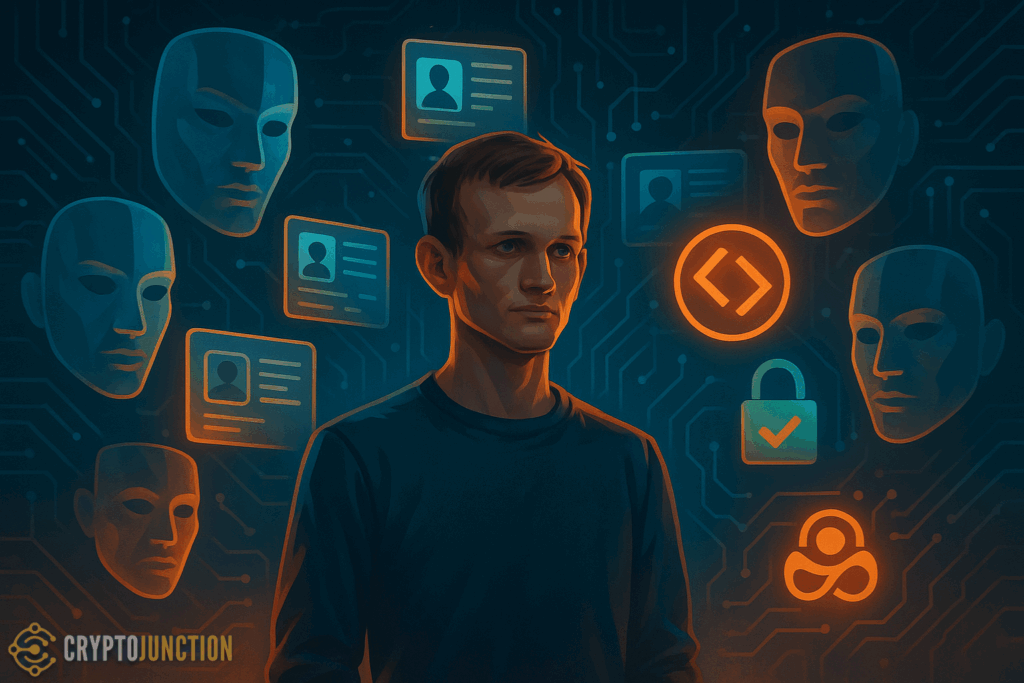Vitalik Buterin has put forth a new take on digital identity. He sees a very advanced tech like zero knowledge proofs may, in fact, be a threat to the user’s privacy. In a detailed blog post which he released June 28th, he went into a “pluralistic identity” model. It is the idea of pseudonymity which is protected while fair play in the online space.
Among identity issues, where Buterin refers to “one person, one ID” as a design feature like World ID, Vitalik Buterin believes these systems may present themselves as private via crypto tools. However, they are really forcing users into a single defined identity which limits your ability to present multiple digital personas. Also, this may in fact empower government and corporate surveillance. Vitalik Buterin explores this fully in his zkID essay.
Pluralistic systems which in turn feature a variety of identity sources. Governments issuing docs, social networks, and Community Trust Models like Circles that count on peer validation. This is a more inclusive web which allows people to put forth their identity without giving out all of it.
Vitalik Buterin Rejects Wealth-Based Identity Models
Vitalik Buterin also looks at proof-of-wealth, which is in the form of requirement of token stakes or monetary fees used to block fake accounts. These systems may push out the underprivileged but deter bots. What we see is a form of gatekeeping.
As identity creation scales up for an individual, it becomes more expensive, in fact exponentially so. This is a way to balance access and Sybil resistance at the same time. It also means identity creation is not a luxury. It allows one ID per person at an affordable price. However, large scale identity acquisition breaks the bank affair, as noted by Vitalik Buterin.
The issue is beyond economics; it is systemic. Buterin reports that if one ID player takes over the market, digital identity may become a single point of control. Even with the best intentions from platform providers, they may by design or not introduce wide scale surveillance and control. This, in turn, chokes off the open access we have to the web.
Advocates For Diversity
Vitalik Buterin has diverse identity frameworks that are also of greater inclusion and also greater resilience. In one system going down users may fall back on the other. This redundancy is key in what we see in authoritative governments’ regions, poor documentation infrastructure, or limited internet freedom.
Pluralistic identity is a framework which supports resistance to coercion. It enables individuals to put up certain personae which may fall by the wayside in tough times. In the issue of identity issuance, Buterin’s model suggests no-one, be it state or startup, should take over that function. Journalists, activists, and whistleblowers, from his perspective, do benefit as they use pseudonyms for security. Web3 commentator Nanak Nihal echoed this concern.
As the digital identity plays a core role in our online lives, Vitalik Buterin’s pluralistic vision puts forth a more democratic and private approach. It is a call to put human autonomy above algorithmic authority in the next version of the internet.

